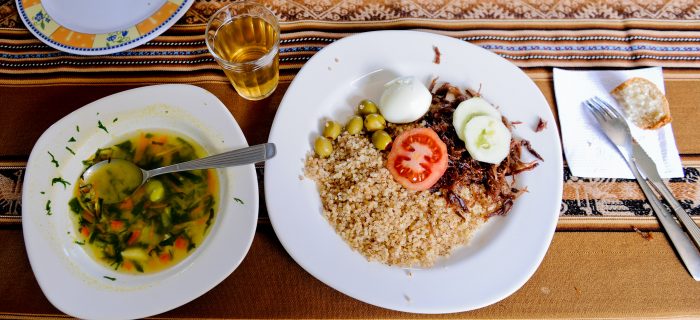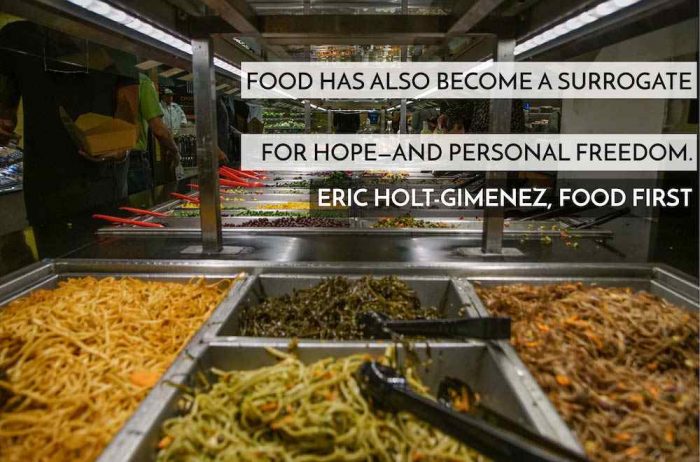Twenty voices weigh in on the decade since The Omnivore’s Dilemma
On the 10th birthday of Omnivore’s Dilemma, New Food Economy featured ED Eric Holt Giménez’s thoughts – along with nineteen other farmers, experts, and activists – on the current state of the food movement. Below is an excerpt from the original article, which you can read in full here.
The “food movement” is a broad term for a political, social, and economic revolution. But it has no one leader, no single belief system, no agreed-upon primary goal. Instead, it’s a diverse, far-flung community united only by the conviction that the world would be better if it had a better food system, and that the fight is worth it.
But what “better” means—and, perhaps more importantly, how to get there–depends on who you ask.
So, though we’ve used the 10th anniversary of The Omnivore’s Dilemmaas an occasion to look back on the past decade in food, we needed more than Michael Pollan’s take. We asked farmers, experts, and activists for insight—the people with their hands in the dirt, literally and figuratively. We posed the same question to each person: What’s the most important or surprising thing that’s changed in the past ten years? Or, what hasn’t changed that urgently needs to?
These are some of the people we turn to, as journalists, when we want to put our ear to the ground. Their fragmented responses, taken together, form a poem of sorts, one that reflects the American alternative food system in all its ambition and frustration. Here is the food movement, in its own words[…]
“The Omnivore’s Dilemma helped produce a generation of ‘foodies’ deliciously obsessed with books, television, documentaries, conferences and festivals about food. More people than ever are fluent on the topics of how food is grown, prepared, consumed, wasted, and on how it impacts our health and the environment. Food has become a meme, spreading ideas and information through our social consciousness in bold, new ways. (While we eagerly consume these viral bits of food facts, we tend not to chew on them for very long…)
In an era of unprecedented economic inequality, dim millennial futures, and deep political disillusionment, food has also become a surrogate for hope—and personal freedom. This is understandable, but at meal’s end, our food isn’t allocated by choice, desire, values, or even by need, but through market demand. Capitalism is the silent ingredient in our food. It means that the 50 million people living in poverty in the richest country on earth—many of whom grow, harvest, process and serve our food—can’t afford to be foodies; they’re too busy worrying about where their next meal is coming from. If we care about people as much as we do about food, and if we really want to change the food system, we’d better become fluent in capitalism.”
Stay in the loop with Food First!
Get our independent analysis, research, and other publications you care about to your inbox for free!
Sign up today!Eric Holt-Giménez is Executive Director of the Institute for Food and Development Policy/Food First. His next book is titled What Every Foodie Needs to Know about Capitalism.
To read New Food Economy’s original article in full, click here.



 Help Food First to continue growing an informed, transformative, and flourishing food movement.
Help Food First to continue growing an informed, transformative, and flourishing food movement.




